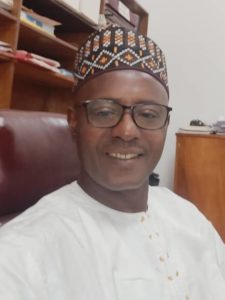Engaging libraries to accelerate inclusive recovery from multiple crises towards agendas 2030 and 2063
In the context of the 9th African Regional Forum on Sustainable Development, IFLA’s Sub-Saharan African Regional Division Committee is proud to organise a side event working with the library community in Niger, the host country of this year’s forum. The event takes place on 25 February, from 13:00-14:30 UTC.
The International Federation of Library Associations & Institutions (IFLA) works to bring about a united global library field powering literate, informed and participatory societies. It focuses strongly on the SDGs as a framework for structuring and maximising the positive impact of libraries on societies, and building awareness and partnerships.
In Sub Saharan Africa, the IFLA Regional Division Committee (IFLA SSA RDC) plays a vital role in building capacity for learning and defining regional action plans and local advocacy priorities that respond to Africa’s needs, with reference both to the 2030 and 2063 Agendas. It emphasizes the transformational role that information and informed societies can play in accelerating achievement of the SDGs in Africa. Libraries are trusted information conduits for all stakeholders contributing to progress across the SDGs.
IFLA has successfully hosted similar events, in partnership with Library Aid Africa, at the 2020 and 2021 African Regional Forum on Sustainable Development. In 2022, IFLA also partnered with the Rwanda government, libraries and other stakeholders towards demonstrating the role of libraries in the development agenda.
At the event, speakers from inside and outside of the library field, across Africa, will identify development challenges created or intensified by the emerging multiple crises, and explore how partnerships involving libraries can provide innovative and effective responses.
Responding to a series of questions, panelists will share lessons and insights about the unique potential of partnering with libraries, and what is needed to unlock this. The floor will be open to participants to contribute their insights and ask questions.
Speakers
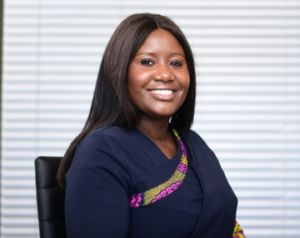 Moderator: Elizabeth Mattheus
Moderator: Elizabeth Mattheus
Ms. Matheus is the Librarian at the Namibia Civil Aviation Authority. She is a member of the Namibia Library and Information Council (NLIC), and the Southern Africa Representative on the African Library & Information Associations & Institutions (AfLIA) Governing Council. Ms. Matheus is a former Chairperson of the National Information Workers Association of Namibia (NIWAN). She holds a Master of Arts in Library & Information Science. Ms. Matheus is an author, and an advocate for the LIS profession. Her drive is to promote equitable access to information for development.
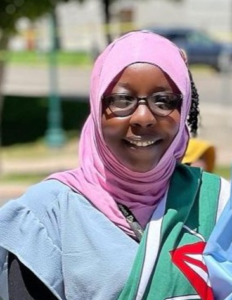 Faridah Lalaikipian
Faridah Lalaikipian
Fariah Lalaikipian is a social innovator and a gender justice enthusiast with a background in policy through her education background in information security policy and governance. Her passion for adolescent and young people’s sexual reproductive health, gender justice, and social innovation is fueled by the challenges young people, especially women and girls go through and the gaps that are in her Muslim community. She has been doing advocacy and community development programmes since 2017.
Fariah believes in a world where women and girls have an equal platform to be heard, empowered and celebrated. Because of this, she runs initiatives called ‘Uzury Women’s Center’, ‘Adopt a Home’ and ‘Jamillah’ through her organization Uzury Empowerment Hub-Kenya. The initiatives are aimed at using a values-base approach, multi-sectoral approach, and community-centered approach to improve the overall well-being of women and girls to reduce their vulnerability to social and gender injustices and mental health issues. Empowering these groups with important life skills on issues like sexual and reproductive health, economic empowerment, education enhancement and empowerment opportunities and many others to support them make healthy life choices.
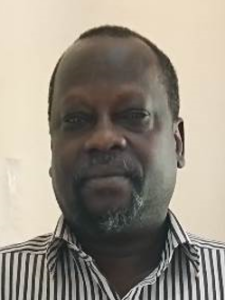 Prof Eugene Ndabaga
Prof Eugene Ndabaga
Eugene Ndabaga holds a Bachelor of philosophy degree from Urbaniana University, Rome, Italy (Philosophy, Psychology and sociology); and an MA and Doctorate both in Educational management, Policy and Planning from the University of Bath, UK. Ndabaga Eugene has taught across various levels of education including secondary school and University levels. For two terms (8 years) Ndabaga Eugene was the vice Rector/DVC in charge of Academic affairs at Umutara Polytechnic University in the Eastern part of Rwanda before the merger. All this time, he supervised post-graduate students both on masters and PhD levels.
Eugene is presently an Associate Professor of Education at University of Rwanda College of Education. He is also the chief editor of Rwanda journal of education (RJE-AJOL) of the University of Rwanda College of Education and an external reviewer for Compare journal of education, UK. Eugene has a number of publications, local and international consultancies and successful grant proposals on his name. H e has presented papers, organized, conducted and attended conferences and seminars both on local and international levels.
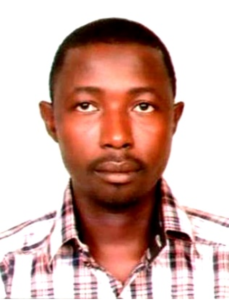 Nabil Seydou Harouna
Nabil Seydou Harouna
A graduate in information science of the Institute for Information and Communications Technology Training (IFTIC) in Niamey, Niger, with 17 years of experience, Nabil has worked across questions relating to documentary information, library management and ICT. He has worked in Niger, Africa more broadly and Europe, specialising in particular in the management of documentary resources, IT support, and integrated library management systems.
He is currently Deputy Director of the Library of the Abdou Moumouni University, Niamey, Niger, a member of the Association of Nigerian Documentary Information Specialists (ASNID), Focal Point for the CAMES institutional repository at the University, Database Administrator of the University’s Integrated Documentation Network, a leading actor in the Collective Catalogue of Nigerien Libraries and Mediatheques, and a member of the Niger Open Science Network.
Amadou Tahirou
Amadou Tahirou is responsible for communication and scientific culture at the Institute for Development Research, Niamey, Niger. He is a graduate of the School of Librarianship, Archives and Documentation at the Cheikh Anta Diop University (UCAD), Dakar, Senegal. He has thirty years of professional experience in the field of information management and scientific communication. Notably, he is a founding member of the Association of Nigerien Specialists in Documentary Information (ASNID), a founding member of the Niger Open Science Network, member of the restricted list of Jury Presidents at the Institute for Information and Communication Skills Training (IFTIC), the coordinator of the expert team responsible for the development and implementation of the IFTIC Masters in Documentation, a Professor at the IFTIC, and editor of articles and responsible for the Institute for Development Research website.
He has participated in training on scientific communication and documentary information management, as well as engaging internationally on issues around digital transformation and communication.
